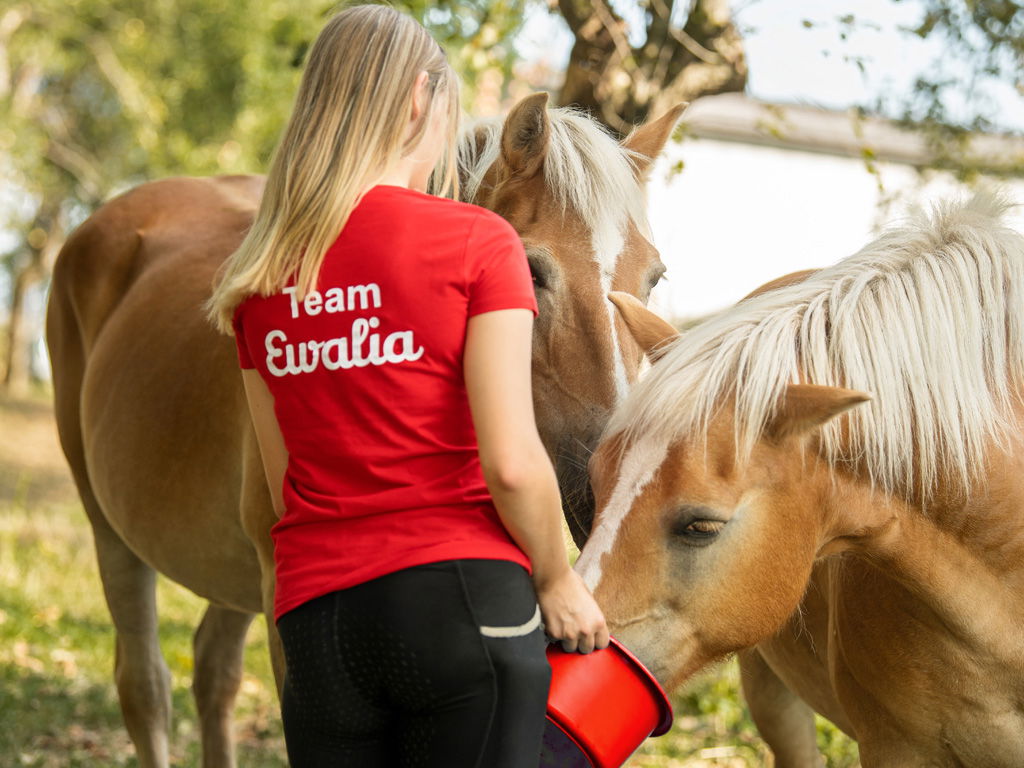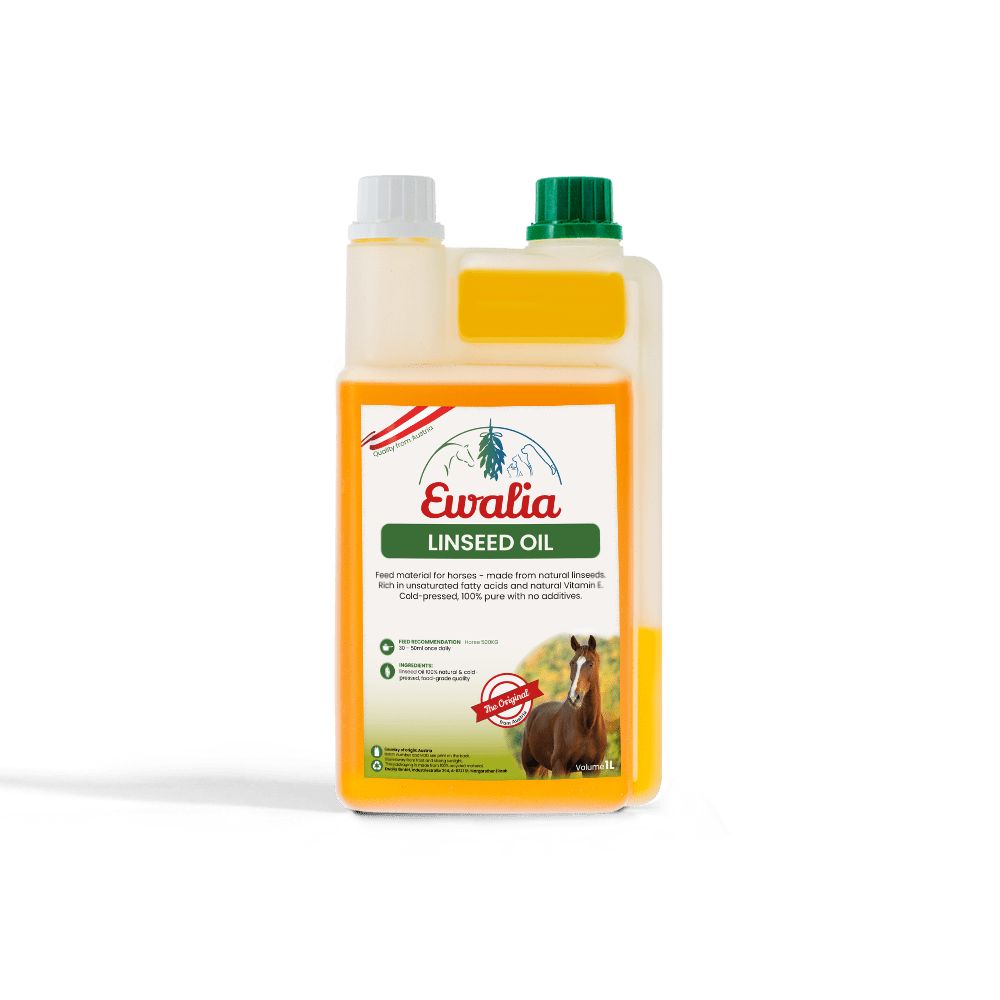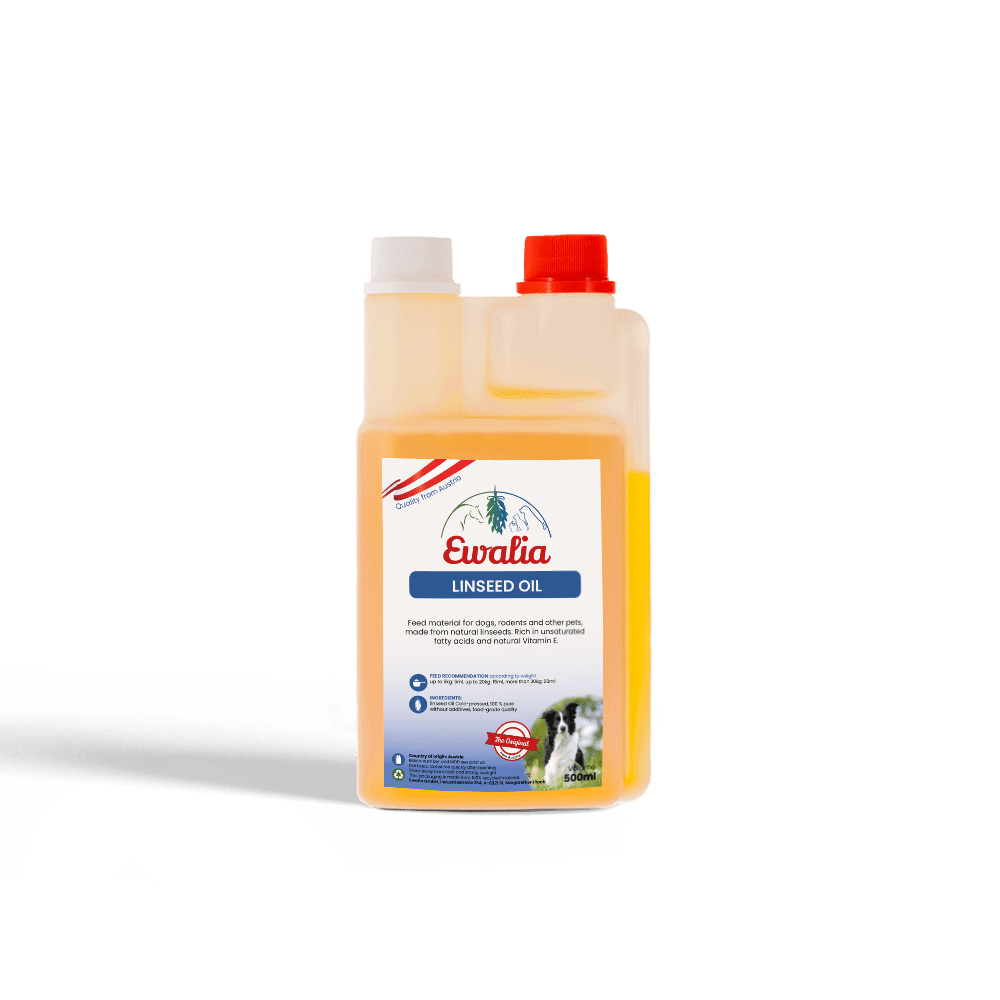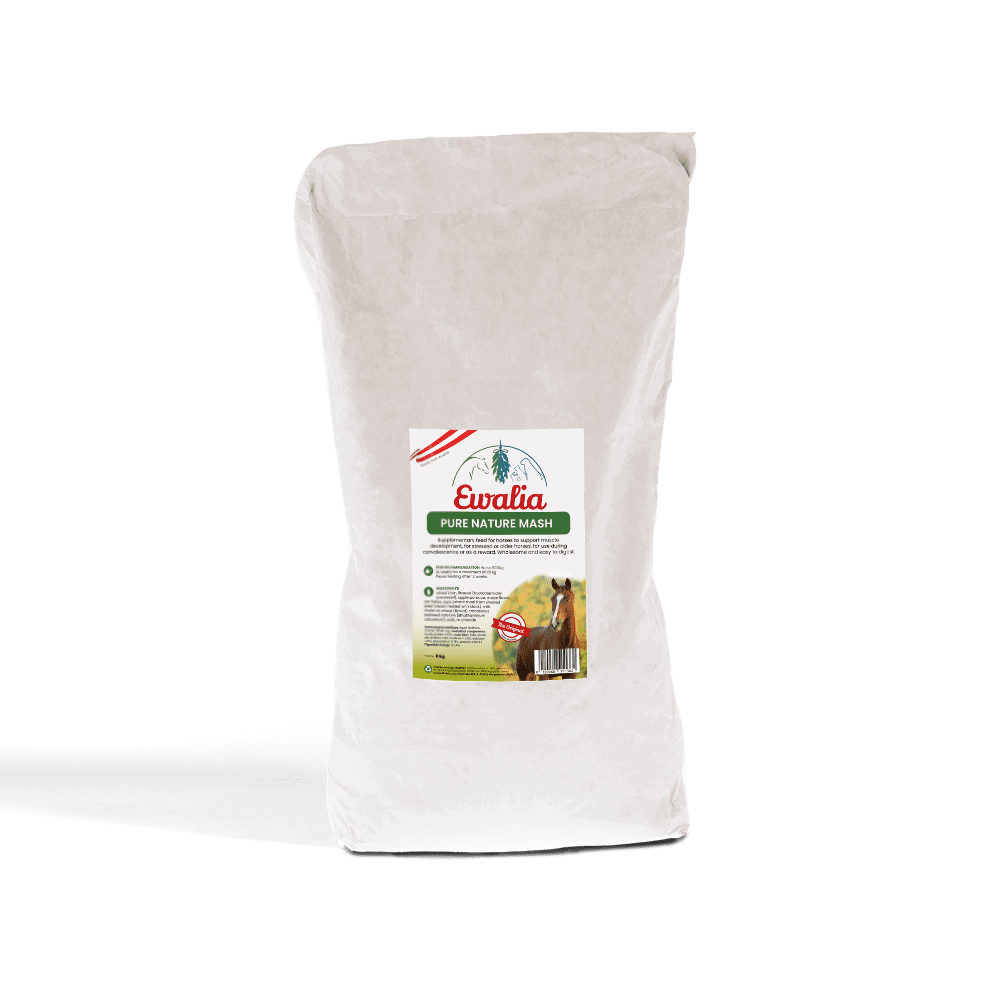Linseed: tiny seeds with big benefits

These brown, gold or pale yellow seeds from the flax plant have a firm place in the equestrian diet. Whole or ground, as oil or cake, linseed provides not only a whole lot of energy, but also important nutrients for the muscles, metabolism and digestion, and adds a superb shine to coats. Read on to find out why linseed and the products made from it are so valuable for your four-legged best friend.
Flax is one of the oldest cultivated plants in the world. Since the Stone Age, these plants with their pretty blue flowers have been processed to produce textiles, cords and nets, while their oily seeds have been used as food for both people and their animals. The writings of Hippocrates, the most famous doctor of Greek antiquity, show that linseed and linseed oil were considered good for a healthy diet as far back as 500 BCE.
What can linseed be used for?
Grooms and horsemen of old knew all about the beneficial effects of linseed. They used the press residue from oil production for warming compresses and poultices to draw out abscesses. After hard work, when moulting or for digestive problems, horses would be treated to a hot meal, a warm mash consisting largely of soaked linseed, or a good glug of linseed oil would be added to feed for underweight horses to provide plenty of energy and add shine to the coat.
What those old grooms knew from experience has long been empirically proven too. The mucilage found in the shells of the seeds protects the digestive tract. Applied externally, it sits on the skin like a protective film, helping to relieve irritation and inflammation. The oils found in linseed contain record levels of omega-3 fatty acids and are a key energy provider and dietary supplement for horses and dogs too. They have an especially beneficial effect on moulting.
Linseed also contains vitamins B1, B2, B6 and E, as well as selenium, and nicotinic, folic and pantothenic acids. Linseed oil is rich in tocopherol (vitamin E) and essential fatty acids, and has antibacterial properties when used externally.
What effect does linseed have on digestion?
The fibre-rich shells of the seeds contain around 7 % mucilage, which swells when it absorbs water. Linseed doubles in volume in the gastrointestinal tract, which encourages intestinal peristalsis. The oil in the seeds also helps to “lubricate” the walls of the gut. However, linseed is also useful in cases if diarrhoea in dogs, which can occur often: it binds with liquid in the large intestine and slows the passage of faeces. It also binds with the toxins produced by the bacteria that cause diarrhoea and transports them out of the body.
Which type of linseed is best for my horse?
Whether the shells of the seeds are brown or a golden yellow makes no difference to their content. You can feed linseed either whole or ground. However, the mucilage trapped inside the cells of the seed shells can only do its job once the shell is broken open; unchewed seeds are excreted undigested. Ground linseed is more easily digestible but has a very short shelf life because the unsaturated fatty acids released during the milling process are sensitive to oxidation.
If linseed is shelled, some of the valuable nutrients contained mainly in the shells will be lost.
Linseed oil is extracted from ripe, crushed seed kernels. Cold-pressed oil, easily recognised by its golden yellow colour and spicy smell, retains the valuable nutrients from the seeds.
Linseed cakes and extracted linseed shred consist of the press residue left from the linseed after oil extraction. They therefore have a lower fat content.
Why does my horse need fat?
It's hard to believe, but green plants also contain fats and oils. A horse that has free access to naturally growing pasture should have an adequate supply of omega-3 fatty acids and especially alpha-linolenic acids. Even oats, which were once considered the traditional feed for hard-working horses, contain oil. Over time, oats have gradually been replaced by other cereals, and natural pastures in which horses can find wildflowers and seeds have become rare.
That’s why experts recommend supplementing with high quality oils, rich in polyunsaturated fatty acids:
- Oily linseed contains high levels of polyunsaturated omega-3 fatty acids, which have positive benefits on the elasticity of cell membranes in blood and nerve cells. This supports the body’s circulation, strengthens the coronary blood vessels and helps to reduce inflammatory processes in the body more quickly.
- Linseed provides the right balance of omega-3 fatty acids and equally important omega-6 fatty acids, which are contained in the seeds in the form of linolenic acid.
- The absorption of vitamin E, or more precisely tocopherol, the active element in vitamin E, is also linked to fat intake. Vitamin E is essential, but the body cannot make its own so has to rely on absorbing enough through the diet. Plant oils, like those found in linseed, are the main source of natural vitamin E. Tocopherol has an antioxidant effect and traps free radicals when it is taken up into cell membranes where it captures the oxygen radicals that damage red blood cells, muscles and tissues, preventing the oxidation of highly unsaturated fatty acids. Because tocopherol itself is oxidised in this process, the body needs to continuously renew its stocks. Another important property of vitamin E is its positive effect on the immune system.
The thing about cyanide: do I need to cook linseed?
Like many other feed plants, linseed contains cyanogenic glycosides, which are precursors to cyanide. After their transformation in the gut, this corresponds to an amount of around 50 mg cyanide per 100 g linseed. Feeding raw, preferably ground, linseed at the recommended dose of 0.5 - 1 g per kg body weight per day is completely harmless to horses. Horse owners who are especially cautious can, of course, cook or soak the seeds: the cyanide compound is volatile and evaporates during cooking or leaches out when soaked.
This pre-treatment has the additional benefit of opening the shells of the seeds, making the mucilage found immediately beneath the shell directly accessible. Take care though, if the linseed boils over, the mixture will stick stubbornly to the hob... But whether it is raw or cooked, horses find these tiny seeds absolutely delicious.
Sources:
- Coenen, M., & Vervuert, I. (2020). Pferdefütterung (6. Ausg.). Stuttgart: Georg Theme Verlag KG.
- Krist, S., Buchbauer, G., & Klausberger, C. (2008). Lexikon der pflanzlichen Fette und Öle. Wien: Springer Verlag.
















